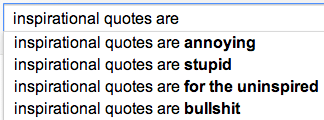Everywhere you turn people and brands are making glaring gaffes that lead to social media scorn and disrepute. Sometimes the best way to avoid making mistakes is to learn from those with the egg on their face.
Posting with intent to titillate.
Anthony Weiner takes the cake with yet another sexting scandal as he embarks on his mayoral bid.
This has to be a favorite among the plain and simple don’t do it social media gaffes. If you’re thinking that anyone with common sense would know better than to repeat such a morally questionable maneuver, then you can join me in the dumbstruck category.
Say no and feel good about it. Anne Lamott compares saying yes when you mean no to a “martyred mentally ill position” akin to the tainted area a mile north of Chernobyl.
In this case, however, I think Weiner’s yes’s mean yes, and that adds up to the same mentally deranged outcome as Lamott’s metaphor.
Don’t over think this. (I’ve done that for you.) There’s no room for behavior that might jeopardize your reputation and integrity. Even texting will return to haunt you.
Sharing (fake) lies.
Staging fake posts to garner attention can be misconstrued as telling lies, and you will risk losing followers’ trust as a result.
When Chipotle’s Twitter account recently appeared hacked, it gained 4,000 new followers in one day, compared to its average of 250, and the hacked tweets earned 12,000 retweets, when it normally sees 75 retweets a day.
Such a sweet outcome is unpredictable, and its success has to do with Chipotle’s treasure hunt, its clues hiding in the Tweets.
The lesson learned here is be very clever in your social media sharing, and your followers won’t suspect outright lies. Anything veering from transparency and authenticity could quickly bring on the reproach brigade.
Just do what feels right.
While this sounds a lot like Weiner’s behavior again, let’s pretend this is about real decisions that are meant to be effective money makers and relationship builders.
The phenomenon of people or organizations who do what they feel is right in the short run and don’t bother considering alternatives or how it will pan out in the long run have what Seth Godin calls impulse control issues.
He compares this to Stoogecraft, the Three Stooges’ method of madness in all decision making. Moe, Larry, and Curly perfected a comedy of errors in their impulse management. Social media and content marketing require a consideration of alternatives and implications, not a fly-by-the-seat-of-the-pants brouhaha.
Sappy quotes are passé.
It appears the era of the inspirational quote has come to an end. For social media marketing purposes, you are better off with short and funny quotes.
 When you Google while in incognito mode “inspirational quotes are,” the recent search results indicate they are considered annoying, stupid, for the uninspired, and bullsh*t.
When you Google while in incognito mode “inspirational quotes are,” the recent search results indicate they are considered annoying, stupid, for the uninspired, and bullsh*t.
Clearly Pinterest, with its inspiration quote stronghold, is comprised of less Google search users than one might think.
Googling “inspirational quotes that are,” brings up funny, short, aren’t cheesy, and uplifting.
It makes me wonder if cohorts of the truly uninspired are conspiring to warp Google search results by punching in these queries over and over, day and night, from sheer inanity.
However you choose to inspire your audience, try to encourage them by walking the fine line of uplifting but not cheesy, funny but not stupid, and short on the bullsh*t.
Let me know how that works out for you.
